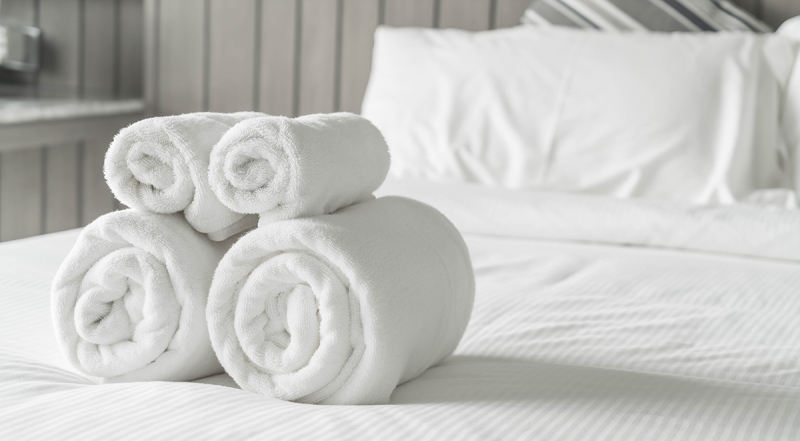In the ever-evolving hospitality industry, hotels strive to maintain a pristine reputation and deliver an unparalleled experience to their guests. One crucial aspect of achieving this is ensuring a safe and comfortable environment by integrating pest monitoring into their safety plans. But how do hotels effectively integrate pest monitoring into their operations? This article delves into the intricacies of pest management, highlighting its significance and the strategies employed by hotels to safeguard their premises.

The Importance of Pest Monitoring in Hotels
Pest infestations can severely tarnish a hotel's reputation, leading to negative reviews and a decline in bookings. Therefore, proactive pest monitoring is essential for maintaining high standards of hygiene and guest satisfaction. Implementing a comprehensive pest management plan helps mitigate the risks associated with infestations, ensuring a safe and pleasant environment for guests and staff alike.
Hotels face unique challenges when it comes to pest control due to their high traffic and diverse range of amenities. From kitchens and dining areas to guest rooms and storage spaces, each area presents its own set of vulnerabilities. To address this, hotels must adopt a multifaceted approach that combines technology, expertise, and proactive measures.
Strategies for Effective Pest Monitoring
1. Leveraging Technology for Real-Time Monitoring
Modern hotels are increasingly turning to advanced technology to enhance their pest monitoring capabilities. Wireless gateways and sensors are strategically placed throughout the premises to provide real-time data on pest activity. This allows hotel management to promptly identify and address potential issues before they escalate. For more insights on why wireless gateways are beneficial for pest monitoring, visit here.
2. Eco-Friendly Pest Control Solutions
As environmental consciousness grows, hotels are seeking eco-friendly pest control solutions that minimize their ecological footprint. Integrating sustainable practices such as using non-toxic treatments and natural repellents not only protects the environment but also appeals to environmentally-conscious guests. Learn more about making hotel pest monitoring eco-friendly here.
3. Tailored Pest Management Plans
Each hotel has its own unique set of challenges and requirements when it comes to pest control. To address this, hotels often collaborate with pest management professionals to develop tailored plans that cater to their specific needs. This includes conducting regular inspections, identifying high-risk areas, and implementing targeted interventions.
4. Staff Training and Awareness
Hotel staff play a vital role in maintaining a pest-free environment. Training programs are implemented to educate employees about the importance of pest monitoring and how to identify early signs of infestations. Empowering staff with knowledge ensures a proactive approach to pest management, reducing the likelihood of infestations going unnoticed.
The Impact of Pest Monitoring on Hotel Reputation
A hotel's reputation is closely tied to its ability to provide a clean and comfortable environment. Online reviews and ratings significantly influence a potential guest's decision-making process. Therefore, hotels that prioritize pest monitoring and effectively manage infestations are more likely to receive positive feedback and maintain a competitive edge in the industry.
For an in-depth look at how pests can affect hotel star ratings, visit here.
Future Trends in Pest Monitoring
The future of pest monitoring in hotels is likely to be shaped by advancements in technology and a growing emphasis on sustainability. As hotels continue to embrace innovative solutions, the integration of artificial intelligence and data analytics is expected to revolutionize pest management practices. These technologies can provide predictive insights, allowing hotels to anticipate and prevent infestations before they occur.
Furthermore, the incorporation of IoT devices and smart sensors will enable hotels to monitor pest activity with unprecedented precision. This not only enhances the efficiency of pest control efforts but also minimizes the use of chemical treatments, aligning with the industry's shift towards eco-friendly practices.
For further insights on the impact of technology on pest control in hotels, explore here.
Conclusion
In conclusion, the integration of pest monitoring into hotel safety plans is a critical component of maintaining guest satisfaction and upholding a stellar reputation. By leveraging technology, adopting eco-friendly practices, and implementing tailored solutions, hotels can effectively manage pest-related challenges. As the industry continues to evolve, staying ahead of emerging trends will be key to ensuring a safe and enjoyable experience for guests.

FAQs
Q1: Why is pest monitoring important for hotels?
A1: Pest monitoring is crucial for hotels to maintain hygiene standards, prevent infestations, and ensure guest satisfaction. It helps protect the hotel's reputation and prevents potential revenue loss.
Q2: How do wireless gateways help in pest monitoring?
A2: Wireless gateways provide real-time data on pest activity, allowing hotels to promptly address potential issues. This technology enhances the accuracy and efficiency of pest monitoring efforts.
Q3: What eco-friendly pest control solutions can hotels adopt?
A3: Hotels can adopt eco-friendly solutions such as using non-toxic treatments, natural repellents, and sustainable pest management practices to minimize environmental impact and appeal to eco-conscious guests.

